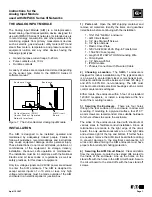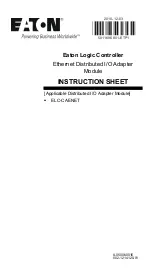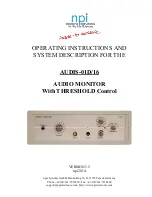
10
EN
FR
DE
ES
PT
IT
Fig. 5
Fig. 6
Da collegare a “ATTENDERE-
OCCUPATO”
To be connected to
“ENGAGED-PLEASE WAIT”
À relier à “ATTENDRE
OCCUPÉ”
Anschließen an “BESETZT-
BITTE WARTEN”
Para ligar a “AGUARDAR-
OCUPADO”
Por conectar a “ESPERAR-
OCUPADO”
Assegnazione identificativo
Assigning identification
Affectation code identificateur
Zuweisung Kenncode
Asignación del código de identificación
Atribuição do identificativo
Microfono
Microphone
Micro
Mikrofon
Micrófono
Microfone
Pulsante di reset
Reset push-button
Bouton-poussoir de reset
Resettaste
Pulsador de reset
Botão de reset
Da collegare al pulsante di chiamata
(cavetti verdi)
To be connected to the call push-button
(green cables)
À relier au bouton-poussoir d’appel
(câbles verts)
Anschließen an Ruftaste
(grüne Kabel)
Por conectar al pulsador de llamada
(cables verdes)
Para ligar ao botão de chamada
(cabos verdes)
TERMINAÇÕES DO bUS
No canto inferior esquerdo da telecâmara, existe
um conector com 4 posições (Fig. 5). Uma ponte
numa das três posições possíveis (A-B, B-C,
C-D), permite terminar correctamente o bus no
que diz respeito ao sinal de vídeo. Testar a po-
sição que permite obter o melhor visionamento
entre a imagens emitidas por todas as botonei-
ras existentes na instalação.
ATRIbUIÇÃO DO IDENTIFICATIVO
O ID (código de identificação da botoneira) é
atribuído através dos 4 dip switch situados na
parte inferior esquerda da telecâmara (ver Fig.
6). Cada botoneira presente na mesma insta-
lação deve ter um código identificativo diferente.
Na tabela 1 pode ser consultada a correspon-
dência entre a posição dos dip switch e o iden-
tificador.
TERMINACIÓN DEL bUS
En el ángulo inferior izquierdo de la cámara, hay
un conector de 4 posiciones (fig. 5).
Un puente en una de las tres posiciones posibles
(A-B, B-C y C-D) permite terminar correctamente
el bus por lo que se refiere a la señal vídeo. Bu-
scar la condición en la que se obtiene la mejor
visión partiendo de las imágenes emitidas por
todas las placas de la instalación.
ASIGNACIÓN DEL CÓDIGO DE IDENTIFICA-
CIÓN
El código de identificación (ID) de la placa se
asigna mediante cuatro dip-switchs ubicados en
la parte inferior izquierda de la cámara (véase
fig. 6).Todas las placas de una misma instala-
ción han de tener un código de identificación di-
ferente. La correspondencia entre la posición de
los dip-switchs y los códigos de identificación se
describe en la tabla 1.
TERMINAISON DU bUS
Dans l’angle en bas à gauche de la caméra se
situe un connecteur à 4 positions (Fig. 5).
Un pontage en une des trois positions possibles
(A-B, B-C, C-D) permet de terminer correcte-
ment le bus en ce qui concerne le signal vidéo.
Tester la condition qui permet d’obtenir la meil-
leure image parmi toutes les plaques montées
dans l’installation.
AFFECTATION D’UN CODE IDENTIFICATEUR
L’ID (code identificateur de plaque) est attribué
par 4 interrupteurs de programmation (dipswitch)
placés en bas à gauche de la camèra (voir Fig.
6). Chaque plaque de l’installation doit posséder
un code identificateur différent.
La correspondance entre la position des inter-
rupteurs de programmation (dipswitch) et le code
identificateur est donnée dans le tableau 1.
bUSAbSChLUSS
In der unteren linken Ecke der Kamera befindet
sich ein Steckverbinder mit 4 Stellungen (Abb.
5).
Mit einer Steckbrücke in einer der drei möglic-
hen Stellungen (A-B, B-C, C-D) kann der Bus in
Bezug auf das Videosignal korrekt abgeschlos-
sen werden. Durch Ausprobieren die Bedingung
herausfinden, die die beste Sicht als Kompro-
miss zwischen dem von allen in der Anlage
vorhandenen Türstationen abgegebenen Bild
gestattet.
ZUWEISUNG DES KENNCODES
Der ID-Code (Kenncode der Türstation) wird
mit Hilfe von 4 Dip-Schaltern zugewiesen, die
sich unten links an der Kamera befinden (siehe
Abb. 6). Jede Türstation derselben Anlage muss
einen anderen Kenncode haben.
Die Übereinstimmung zwischen der Stellung der
Dip-Schalter und der Anschlusskennung ist in
Tabelle 1 aufgeführt.
TERMINAZIONE bUS
Nell’angolo in basso a sinistra della telecamera,
è presente un connettore a 4 posizioni (Fig. 5).
Un ponticello in una delle tre posizioni possibili
(A-B, B-C, C-D), permette di terminare corret-
tamente il bus per quanto riguarda il segnale
video. Provare la condizione che permette la mi-
glior visione come compromesso tra l’immagine
emessa da tutte le targhe presenti nell’impianto.
ASSEGNAZIONE IDENTIFICATIVO
L’ ID (codice identificazione targa) è assegnato
mediante 4 dip switch posizionati in basso a sini-
stra della telecamera (vedi Fig. 6).
Ogni targa presente nello stesso impianto deve
avere un codice identificativo diverso. La corri-
spondenza tra la posizione dei dip switch e l’i-
dentificatore è contenuta nella tabella 1.
bUS TERMINATION
In the bottom left-hand corner of the camera is a
connector with 4 positions (Fig. 5).
A jumper in one of the three possible positions
(A-B, B-C, C-D), terminates the bus correctly for
the video signal. Experiment to determine the op-
timum compromise to provide best overall vision
from all the entrance panels in the system.
ASSIGNING IDENTIFICATION
The ID (entrance panel identification code) is as-
signed by means of 4 DIP-switches in the bottom
left-hand corner of the camera (see Fig. 6). Each
entrance panel in the same system must have
a different identification code. The correlation
between the position of the DIP-switches and
the identifier is shown in table 1.
Da collegare per illuminazione
targa (nero-bianco)
To be connected for entrance
panel lighting (black-white)
À relier pour éclairage de
plaque (noir-blanc)
Anschließen für Beleuchtung
der Türstation (schwarz-weiss)
Por conectar a la iluminación
de la placa (negro-blanco)
Para ligar à iluminação da
botoneira (preto-branco)
PT
ES
DE
FR
EN
IT
Summary of Contents for ELVOX 692U
Page 15: ...15 PT ES DE FR EN IT...


































